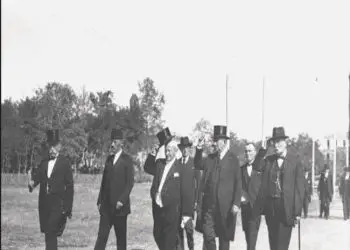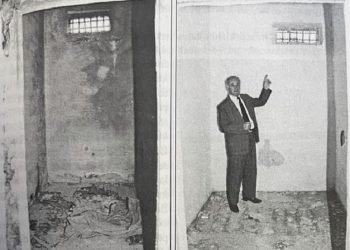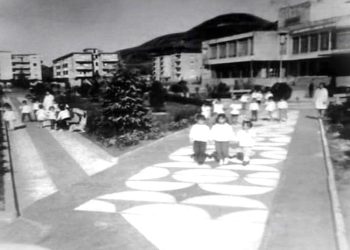By Sokrat Shyti
Part Sixty-One
Memorie.al /The writer Sokrat Shyti is the “great unknown” who for several years has shown the tip of the iceberg of his literary creativity. I say this based on the limited number of his published books in recent years, mainly the voluminous novel “The Ghost Night” (Tirana 2014). The novels: “BEYOND MYSTERY,” “BETWEEN TEMPTATION AND WHIRLPOOL,” “THE DIGGING OF NIGHTMARES,” “THE SHADOW OF SHAME AND DEATH,” “COLONEL MAIN HAND,” “THE FADING HOPES,” “THE TWISTS OF FATE” I, II, “SURVIVAL IN THE COWSHED,” as well as other works, all novels with 350 – 550 pages, are in manuscripts waiting to be published. The dreams and initial enthusiasm of the young novelist, returning from studies abroad full of energy and love for art and literature, were cut short early by the harsh blade of communist dictatorship.
Who is Sokrat Shyti?
Having returned from studies at the State University of Moscow right after the rupture of Albanian-Soviet relations in 1960, Sokrat Shyti worked in “Radio-diffusion” (which at that time was located on Kavaja Street), in an editorial office with his journalist friends – Vangjel Lezho and Fadil Kokomani – both of whom were later arrested and subsequently executed by the communist regime. Besides the radio, 21-year-old Sokrat had passionate literary interests at that time. He wrote his first novel “Madam Doctor” and was on the verge of publication, but… alas! Shortly after the arrest of his friends, to fill the cup, one of his brothers, a painter, escaped abroad.
Sokrat was arrested in September 1963, and in November of that year, he was interned along with his family (his mother and little sister) in a place between Ardenica and Kolonje of Lushnje. For 27 consecutive years, the family lived in a cowshed made of reeds, without windows, while Sokrat was subjected to forced labor. During those 27 years, he was legally obliged to report three times a day to the local authority. He had no right to leave the place of internment, was deprived of any kind of documents, etc. In these conditions, amid a cowshed, he gave birth to and raised his children. Precisely from this event, or more accurately a very long story of persecution, he based his writing of the book “Survival in the Cowshed”!
Agron Tufa
Continued from the previous issue
EXCERPT FROM THE BOOK “SURVIVAL IN THE COWSHED”
These forms of creativity were successful, greatly increasing interest. Very soon, people started talking everywhere about the entertainment programs that were broadcast by the voice centers in the FUD departments. Comparative assessments appeared: some said that they were more attractive and interesting than the soldier’s programs of Radio-Television, which is why there were requests to broadcast them at the Republic level. But it was opposed by the General Directorate of Radio-Television. (For me, there was no doubt that the final opposition came from my name. Because if the opposite happened, acceptance would mean repentance towards me).
However, despite this opposition, the Political Directorate of the Ministry of Defense, (which had followed all the broadcasts of these educational entertainment programs), did not change its opinion, gave the maximum assessment to the author, based on the undeniable fact; that all the military units of the FUD, obtained excellent results in shooting against water and air targets, the most important indicator of mobilization. In addition to the verbal assessment, articles were published in the newspaper “Luftëtari” and the magazine “Ushtria Popullore”, about the great impact of this program, in increasing the morale of the soldiers.
(Although my name was not mentioned in these articles, I did not call it a deliberate disregard by anyone, since the facts spoke differently: the great heads of culture and propaganda, did not give up their open support. I was especially surprised by the magnificent ceremony organized in the Palace of Culture of the Soldiers, where the director of the Political Directorate participated, and I was awarded an honorary diploma…).
(The isolation for three years in the cowshed, accompanied by the forced confinement in solitary quarantine, had in themselves created the thick shell of mental separation from the turbulent political environment, so I could not guess, no matter how keen my sense of smell was, what was being concocted in the enigmatic brain of “Zeus”, that inside him insidious traps and traps were being set up, for the witch hunt of the great military men, in the Party and State Pyramid, and these contradictions were the first cracks and fissures of the friction, which would later turn into deep fissures!…)
Taking on this diverse activity, especially the radio productions, removed the rust and slag that had blocked the hearth of inspiration. But in the meantime, the envy and jealousy of my ill-wishers in the Writers’ League were awakened from their slumber, who were probably frightened by the surprising encouragement and support of the great military chiefs, when they had hoped otherwise, that the army’s morass would squeeze me to the last point of my desire to write. Commander Aliu, from time to time, informed me by radio about the enthusiasm of the soldiers, and that the regimental commissar was impatiently awaiting my return to base.
He also informed me that the FUD medical-legal commission had declared Private Halimi unfit to perform military service under arms. “Perhaps he could be accepted for the NBU, as a shepherd or an assistant tractor driver. But it is absolutely not allowed to give him a weapon in his hand”!
– “And how was it decided?” – I asked.
– “We don’t have the legal authority to remove him. We only give opinions. Let the company deal with filling water and other menial tasks.”
– “Did they find any shoes?”
– “They didn’t make any pairs. That’s why they gave him rubber boots, just so he wouldn’t be barefoot…”!
After this conversation, I imagined the innocent portrait of Halim, with those sparse beard hairs and the hazy gaze through which he expressed his complaint to us, with the question: “Why am I being treated like an idiot, when I’m not one? Why should the doctors’ incompetence fall on my shoulders?”?! And in the end came the answer: “Maybe I’m late, but not an idiot”!
The service in the coastal points gave me the opportunity to stay in Kolonjë for a few minutes, just to meet my mother, when I was on my way there. At first, my mother was surprised to see me wearing a new uniform. She was disappointed that I left so soon, hoping that I would stay for a few days, like the last time, when I went on leave after leaving the hospital. She also found it quite strange that I was doing my job as a journalist in the army, just like I did back then on the radio!
– “So you get tired here too, you’re exhausted from breakfast to dinner”! – she said in despair.
– “Compared to Radio, here I have several times better conditions,” I answered to calm her down. – “Do you meet Lika?” – she asked.
– “As the case may be,” I replied. – When I happen to pass through Lushnje during class time, I don’t stop. Because she can’t leave the classroom either, and I don’t have work waiting for me”.
(In reality, I acted quite differently. After the recordings were finished, I would return to Zogu’s villa, leave all the equipment in my corner, go by “Jeep” to Plepat, where the driver would park it in the ward, and there I would wait for a random car to Lushnje. I made this journey often, whenever I got the chance. The next morning I would return by volunteer bus to Plepat, where the “Jeep” would wait for me. This almost daily journey continued for as long as the service lasted. We got so used to spending the nights with my fiancée that it seemed to us as if we were married, and I was working in Durrës!
Whenever I didn’t come due to distance or the officers invited me to attend their dinner, and I slept in the ward, Arqelini would worry about this absence, because he forgot that I was a soldier. So whenever he saw me, he would ask me a question of complaint: “Why didn’t you come? What happened?” At first I smiled. Then I would say: “Even if I was a civilian and working in Durrës, I wouldn’t come so often. Because the road has expenses and takes time”!
Surely this time interval deserves to be called the golden period, the fortunate combination of chance and skill, as the generous reward of our love! This very special “honeymoon” continued until the end of my service as a military journalist. When this moment arrived, I warned Arqelin that meetings from now on would become rarer, not only because of the distance, because we moved from Vila e Zogut and I would be based in the villages of Sukthi, Hamallaj or Perlat, but I would be performing other duties that would keep me tied to the unit. “Therefore, we should not complain, considering that we actually had a longer honeymoon and a more abundant supply of pleasure than married people…”, – I told him, hugging him.
When I returned to my company, after Commander Ali, Private Halimi came to meet me. He hugged me in his arms, to thank me, that, even though I was far away, I took care of him, just like an older brother. Thanks to this care and the kindness of the company commander, no officer would ever bother him again. His feet, clad in socks and boots, would not crack. And he would not get in line to do exercises. He spent all his time in the kitchen and the tap: washing the kettles, filling water. The cook was generous: he gave him food until he was full, so he no longer suffered from hunger.
Surprisingly, the summer months passed very quickly, without feeling it, not only for me, who was constantly on the move, but also for the soldiers of my company. Because the hills around the vineyards served as a source of pleasure, where all varieties of grapes were cultivated: ‘Perla’, ‘Muscat’, ‘Shesh i Bardhë’ and ‘Shesh i Zi’, ‘Gjatush’, ‘Table grapes; etc.
The observation posts were located in picturesque places, with tents, where every soldier wanted to stay, because in reality the so-called service seemed to them a fabulous rest. Generally they spent their time lying down under the shadows. Whenever they felt like it, they would stop to eat bread with cheese and grapes, which they chose according to their taste. They really felt like owners of the massive vineyard, because from the moment when readiness number one was established, the guards left, and no civilian foot was heard.
Commander Ali often ordered the soldiers to eat as much as they wanted, but not to waste it. To contain the craving, it is enough to think that they have planted it themselves, and have served it every root. “It is a great sin to waste the sweat and labor of the farm workers”! – he repeated. Because it often happened that some soldiers would pick large quantities of grape bunches, almost as if they were picking them to take to the market, or to the wine factory, and would compete among themselves, who could eat the most, until in the end they remained dazed and drunk from alcohol, and fell into a deep sleep!
This concern was the most frightening anxiety for the commander, since if a surprise inspection came to the observation points, he would without any hesitation prosecute them, considering the drunken state of the soldiers on duty as deliberate sabotage. But fortunately, the officers of the FUD and BUD headquarters did not take the company from Burrel’s NBU hostage at all, perhaps because they still did not know and did not understand what task a military group could fulfill, when there is no knowledge of combat tactics, most of them may have learned how to disassemble and assemble an automatic rifle, and in fact they are unarmed!
Looking critically at the real situation, I came to the sad conclusion that the arrival of this contingent from Burrel’s NBU was only to fill the gap created after the relocation of the structures under arms, as a reinforcement of the southern border, where the threat of war loomed. Therefore, the regimental commissar did not even bother to inspect the company’s readiness, although he often came here to eat and drink, he would sit down for seven meals, like Turkish pashas, in the commander’s alcove or under the shade of a tent, and start chatting with full enthusiasm, as if he had come to a rest center amidst abundance!
When the soldiers learned that the regimental commissar was emptying the liter bottle, they jumped up with joy, calling this a magical chance to go home with twenty-four hours’ leave, on condition that on their return, they would bring with them a bottle of brandy and two or three fried birds. It did not take special intelligence to notice that the company commander was in a rather difficult situation. Because being a rather timid guy, he didn’t even dare to ask me for friendly advice on how to get out of this mess, especially when the regimental commissar made it a habit to appear in the Perlat vineyards two or three times a week, and always wanted to set the table. The only solution was to find a suitable form of conversation with the cook, so that he could serve as the closest liaison with each soldier.
But his sense of smell advised the cook to open up to me first, before taking this fragile step. Therefore, one day, after the regimental commissar had left, he didn’t hesitate to tell me openly that we both could and should help Commander Ali get out of his great embarrassment. And without further ado, he presented me with the only option for salvation, sending every village soldier home on leave once a month, a proposal that, according to him, would be accepted with great joy by everyone, since the villager likes to show off in uniform and the return expenses, a bottle of brandy and two or three fried chickens, do not hurt at all.
– “I am a villager myself and I know the psychology of the village by heart. Even the parents feel proud when their son comes home on leave. There is no need for him to tell them about the expenses he needs, since they themselves fill his backpack with food…” – said the cook.
– “But you have to be careful not to mention the name of the commander, the name of the commissar, or even my name, because then the whole thing will go wrong”… – I advised him.
– “Not a single name will be mentioned! – he assured me. – I know how you talk. First, we’re starting with ‘father'”.
– “Which ‘father’?!… – I asked in surprise.
– “I forgot that you’ve been away for months, and I don’t know the nickname of a soldier who gave himself this nickname because he likes to brag. At first, when he got into a conversation with his friends, he would just beat his chest with his fist, saying arrogantly: ‘Father knows this matter! Father settles this score’! Immediately after these answers, the soldiers began to address him not by name, but: ‘Hey, Dad, how are you feeling today?’
– “You have good relations with this soldier? Are you sure he doesn’t doubt your word?”… – I said before expressing my opinion.
– “If I weren’t, I wouldn’t mention him at all,” – the cook replied.
– “Then try it! But tactfully and very carefully”! – I advised him.
– “We’ll use ‘Dad’ as bait to lure the others later,” the cook added with a smile. – Because he gets drunk with a touch of bragging. I’m a thousand percent convinced that upon his return he’ll say to his closest friends: ‘Would you like permission to go home? Here you have ‘Baba’; Baba will fix it for you”!
I found the regimental commissar’s lack of self-control and self-awareness strange: how could this major officer not be impressed and never even think of asking, even once, the company commander or the cook, where this abundance of food came from! But he sat cross-legged in your shade, extremely satisfied with that abundance of snacks and drinks, chewing corn bread baked in a crock, fried birds with butter, pickles of many kinds, sheep and goat cheese! What made him so gluttonous? Was it perhaps his blind conviction that his duty is fulfilled when the voice of the party reaches the base? And that is why he prided himself on meticulously implementing this directive?!…
– I am different from the major officers of the offices, who boast as if they are… – the commissar addressed me, as if he had almost smelled my questions. – These only know the papers. But in the field we are practical, we sit down with you and the base officer, we cry out our troubles together, we eat and drink from a cauldron… A health to the base officers! Come on, journalist, you too, you gourmet! Tell me: did those from FUD and BUD, with whom you met, know how to lay a mat, like us?… Here’s what I’ll say: they are either inexperienced, or their stomachs can’t handle the strength of the brandy…
But you are not like them, since you have the example before you. Come on, a toast to your health! We (the company commander, me and the cook) chewed slowly and carefully to accompany him.
We ate in silence without answering him, and listened to his ramblings without putting a single drop of brandy to our lips, telling him that we were on duty, and readiness number one requires a clear mind.
– What readiness are you talking about, comrade journalist? – he addressed me in a mocking tone. – Haven’t you heard that oft-repeated talk: war is a fool’s game taken seriously? Do you really think that the southerners will attack us?… It’s nonsense. That’s just how politics works. Do you know how many things are not said, but done?… Nowadays, war is fought with insults and curses. Many people throw tantrums, like the one at the Soviet embassy in ’51. These noises are intended to cut off some scapegoats. You’ll see: after readiness there will be mishmash, enough to distort our minds. Those at the top of the Pyramid will boast that we beat the two Zervis!…
Commander Ali and I exchanged worried glances, afraid that the cook would pass on the commissar’s dangerous statements to someone, and the word would reach the ears of the FUD and BUD security, who would certainly question us as witnesses.
Therefore, to avoid this frightening consequence, we both had the same idea: that the cook, after bringing the lunch preparations, should leave to perform another task. (In fact, we remembered to take this measure too late. Because the frequent visits of the regimental commissar, and the frequent trips of the soldiers home to bring raki and snacks, in exchange for twenty-four hours of freedom, had reached the ears of the security…) Memorie.al
Continued in the next issue




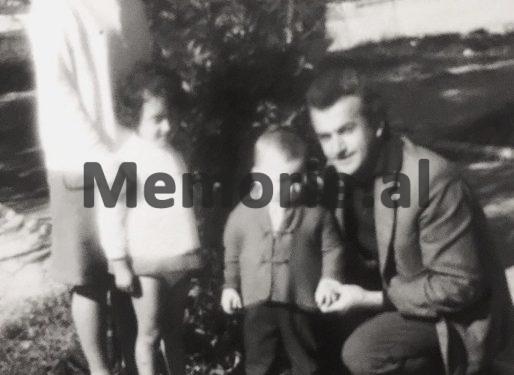
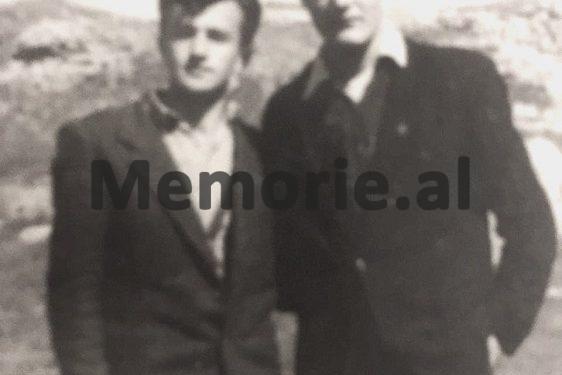
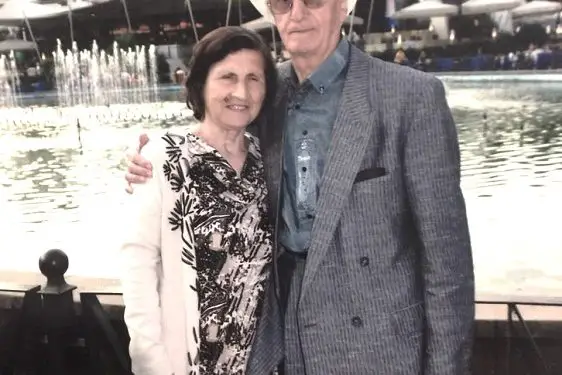
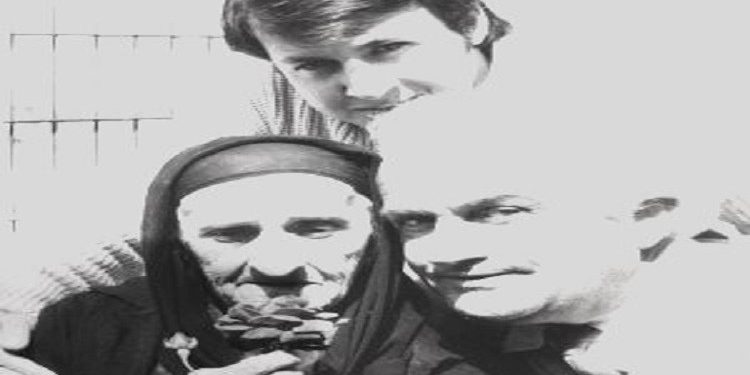
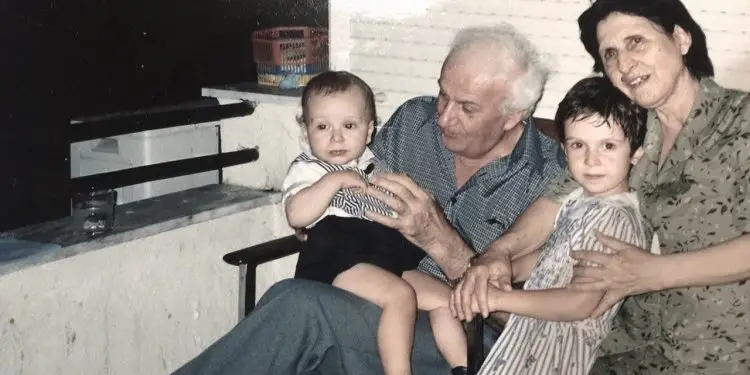
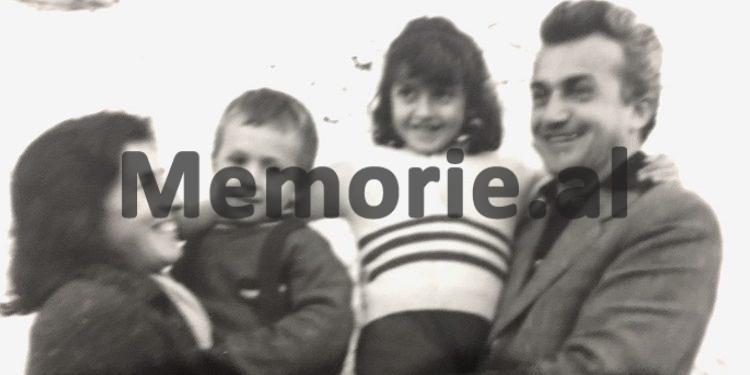

![“After the ’90s, when I was Chief of Personnel at the Berat Police Station, my colleague I.S. told me how they had once eavesdropped on me at the Malinati spring, where I had said about Enver [Hoxha]…”/ The testimony of the former political prisoner.](https://memorie.al/wp-content/uploads/2024/09/admin-ajax-4-350x250.jpg)
